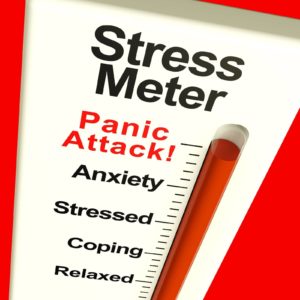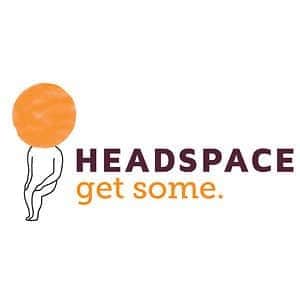Table of Contents
*This post may contain affiliate links. As an Amazon Associate we earn from qualifying purchases.

All humans, including athletes, experience stress and there are numerous articles written on the topic. I once read that stress might be compared to a spice we put on food. The idea is that too little spice leaves food bland while too much spice overpowers the food. Either way, the food is not at its best. The same might be said for stress. We need a certain amount of it to help us perform well and to help us focus better to bring our best to the game. When we have too much stress our performance can decrease according to some researchers (Inverted U Theory). One thing I have learned over the years regarding stress is it is not about eliminating these feelings of angst (even though I often daydream about this when I picture being on a beach), but more about managing it. The important point is that stress is not always bad. It just has evolved to have many negative connotations. In fact, learning to change your perspective might just be key.
Stress
 The terms stress is credited to Hans Selye, who was a medical doctor studying the effects of strain on the body and the immune system. And even though the term was coined only about 60 years ago, it has received a lot of attention as we try to understand it.
The terms stress is credited to Hans Selye, who was a medical doctor studying the effects of strain on the body and the immune system. And even though the term was coined only about 60 years ago, it has received a lot of attention as we try to understand it.
Teaching others to manage stress has taught me a tremendous amount. I have searched for new ways, new ideas, and new views for management of the mind-body symptoms. What I have learned is that the tools to manage stress are skills and the best way to approach coping is through knowledge and skill development so you can channel the stress to be positive for you.
Knowledge and Skills are Needed to Manage Stressors
The knowledge part of stress management involves the following points:
- Learning what stress is and how you personally experience it.
- Knowingwhat situations or events seem to trigger your most uncomfortable levels of stress.
- Knowing and rehearing ways to help yourself manage these symptoms and events, especially your interpretation of having symptoms of stress.
Watch this TED talk to see an amazing finding about our beliefs of stress and how beliefs play a big factor in how stress affects health.
The skills portion of coping with stress is knowing how to practice certain mental or physical tools on a daily basis so you improve daily at using the skills when you really need them. I think the biggest mistake people make with stress management is expecting to be able to cope with stress just simply because you have knowledge of it. You have to do step two. You have to practice the behaviors or mental skills, just like you would lift weights to build muscle. No coach would expect you to have strength developed on the spot, just in the exact moment you need it. Instead, a weight lifting program would be designed and the athlete would develop strength over time. To me, this means none of us has to be perfect with stress management but more aware of how to use tools to cope with is so it is managed and we can make stress more of a good thing.
3 Steps to Build Your Own Stress Management Program
Design your own program with the following steps that involve knowledge and skill development.
FIRST, identify what your typical stressors are for you. These might be being around certain people, specific situations, or not doing enough of the basic wellness behaviors, such as getting sleep, exercise and good nutrition.
If there are situations that really heighten your stress ask yourself the following questions:
Can I change the situation? If not, can I accept it? Or, can I at least change my perspective of it or how I talk to myself about it? (Watch the TED video!)
 SECOND, from the list below identify what your symptoms are when your stress is getting too high so you have some barometer or cues.
SECOND, from the list below identify what your symptoms are when your stress is getting too high so you have some barometer or cues.
Category One: Cognitive or Mental – difficulty focusing or making decisions, daydreaming more than usual
Category Two: Physical – headaches, stomach aches, or digestive problems, backaches and fatigue
Category Three: Emotional – more irritability, mood swings, depression, anxiety
Category Four: Social – less desire to be around people, less pleasure when you are with others; withdrawing and spending too much time alone
THIRD, what coping skills do you want to practice on a daily basis so you have a few tools to use when you need them most? There are many tools for managing stress and I like to put them into Mind – Body categories. Below are a list of examples.
Body
- Massage
- Warm baths/showers
- Exercise, such as walking on a consistent, daily basis
- Do fun social activities on a regular basis with a person or person you enjoy
Mind
- Self talk – coach yourself and move toward more positive self talk rather than critical or negative; remind yourself that stress is not necessarily bad for you
- Breathing – practice diaphram breathing or regular, daily meditation for at least 10 minutes a day
- Visualization – begin to imagine more of what you want to occur rather than what you do not want to happen; under stress many people catastrophize, or picture the worst case scenerio.
- Small Goals – when you feel overwhelmed create small goals you can accomplish
It seems like the best summary is twofold. One, move your thinking toward the positive direction. Two, turn those thoughts into actions! You may not be perfect at coping with all stress but you certainly have tools to help you cope.

